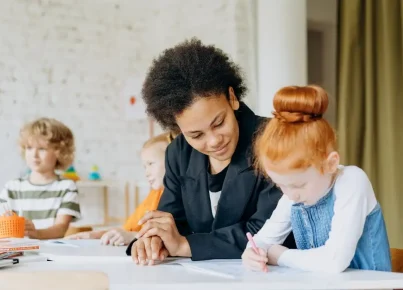Graduation is an important milestone for all students, but it can be particularly challenging for those with disabilities. Here are six ways to support graduating students with disabilities and ensure they have a positive experience as they move on to their next chapter.
1. Offer Appropriate Accommodations
One of the key ways to help graduating students with disabilities is by providing appropriate accommodations during the graduation ceremony. This may include sign language interpreters, accessible seating for students and families, and any necessary modifications to the walking route or stage setup. Accommodations will vary depending on the specific needs of each student, so it’s essential to work closely with them and their families to ensure everyone is included.
2. Provide Personalized Supports
Every student with a disability will have unique needs and require different supports. To help these students succeed during graduation, develop personalized plans in collaboration with their families, teachers, and support staff. This may involve adapting the graduation routine or process in ways that make it more accessible for students who struggle with mobility or have sensory issues.
3. Foster Inclusion Throughout School Experience
Fostering an inclusive environment throughout a student’s entire school career will better prepare them for graduation day. Encourage understanding and acceptance among teachers, staff, and fellow students by raising awareness about different disabilities and promoting inclusivity in classroom activities and extracurricular programs.
4. Celebrate Each Student’s Achievements
It’s essential to acknowledge the hard work and dedication of all students during graduation, including those with disabilities. Ensure that each student receives individual recognition for their accomplishments, from earning special awards or honors to simply completing their required coursework. By celebrating each student’s achievements, you will help promote a sense of accomplishment and pride in all graduates.
5. Maintain Ongoing Communication
In the months leading up to graduation, maintain open lines of communication between school staff, students with disabilities, and their families. Keep everyone informed about upcoming events, deadlines, and any necessary preparations. Continuous communication helps everyone feel included and ensures that accommodations are in place to support the students as they prepare for their big day.
6. Offer Transition Resources and Support
Graduation is just the beginning of a new chapter in students’ lives. For those with disabilities, life after high school may involve different challenges that require supports and resources to help them transition successfully. Partner with local agencies, vocational rehabilitation programs, or disability organizations to provide mentoring, career counseling, and additional resources to graduating students with disabilities as they navigate life beyond high school.
By considering these six strategies, you can help create an inclusive and supportive environment for graduating students with disabilities, ensuring that they feel valued and prepared for the exciting opportunities ahead.




